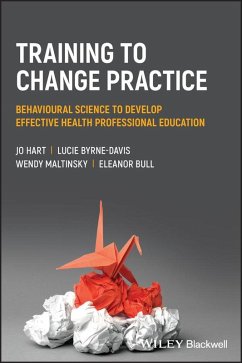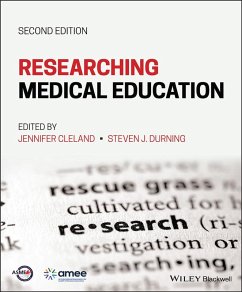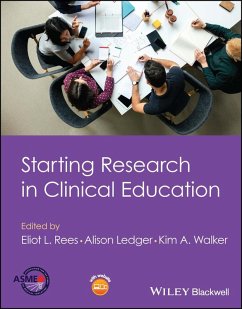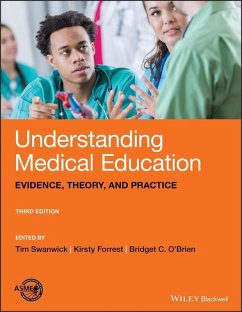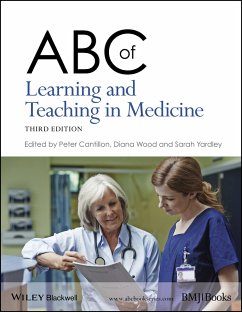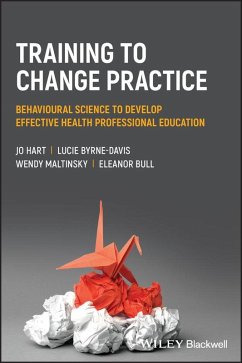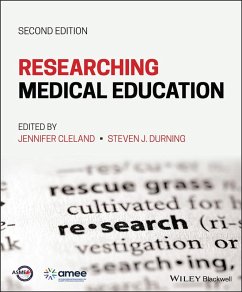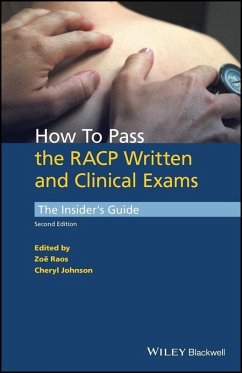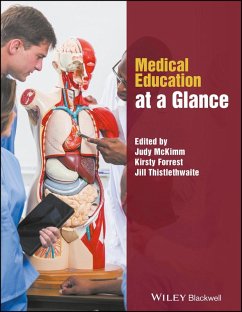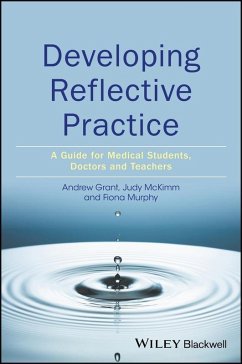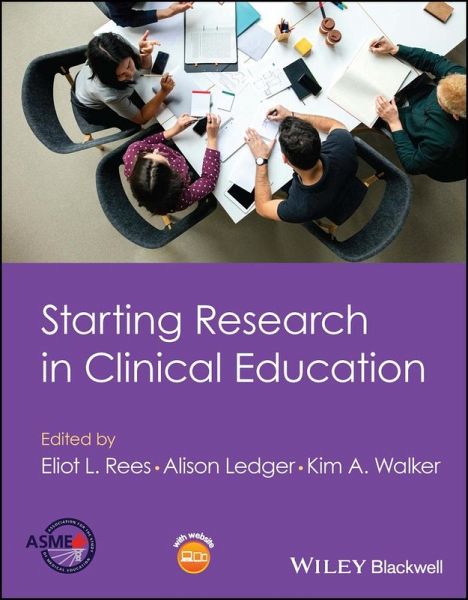
Starting Research in Clinical Education (eBook, ePUB)
Versandkostenfrei!
Sofort per Download lieferbar
40,99 €
inkl. MwSt.
Weitere Ausgaben:

PAYBACK Punkte
0 °P sammeln!
Starting Research in Clinical Education A practical guide to clinical education research with top tips, common pitfalls and ethical issues. Starting Research in Clinical Education is written by a global team of experienced and emerging clinical education researchers who have a wealth of knowledge designing rigorous research projects and expertise in contemporary methods. Covering a broad spectrum of methods used by clinical education researchers, the book is split into five parts: research design, evidence synthesis and mixed methods research, qualitative research, quantitative research and su...
Starting Research in Clinical Education A practical guide to clinical education research with top tips, common pitfalls and ethical issues. Starting Research in Clinical Education is written by a global team of experienced and emerging clinical education researchers who have a wealth of knowledge designing rigorous research projects and expertise in contemporary methods. Covering a broad spectrum of methods used by clinical education researchers, the book is split into five parts: research design, evidence synthesis and mixed methods research, qualitative research, quantitative research and succeeding in clinical education research. These sections are also accompanied by a companion website which provides further resources. The methods discussed are illustrated with real life examples and case studies to support the reader in designing their own project. The new edition includes information on: * Getting started in clinical education research, constructing a research question, clarifying research paradigms and design, using educational theory, involving stakeholders, sampling and recruiting participants and conducting ethical research * Evidence synthesis, realist research, mixed methods research, action research and emerging possibilities in online data collection * Interviews and focus groups, visual elicitation, ethnography, narrative research, thematic analysis and struggles new researchers often face in qualitative research * Survey research, experimental methods, statistical analysis and big data * Maximising opportunities, project management, writing dissertations, writing for publication, research dissemination and career development This edition is designed to support those new to clinical education research, including those undertaking intercalated or postgraduate degrees in clinical, medical, dental or health professions education.
Dieser Download kann aus rechtlichen Gründen nur mit Rechnungsadresse in A, B, BG, CY, CZ, D, DK, EW, E, FIN, F, GR, HR, H, IRL, I, LT, L, LR, M, NL, PL, P, R, S, SLO, SK ausgeliefert werden.




